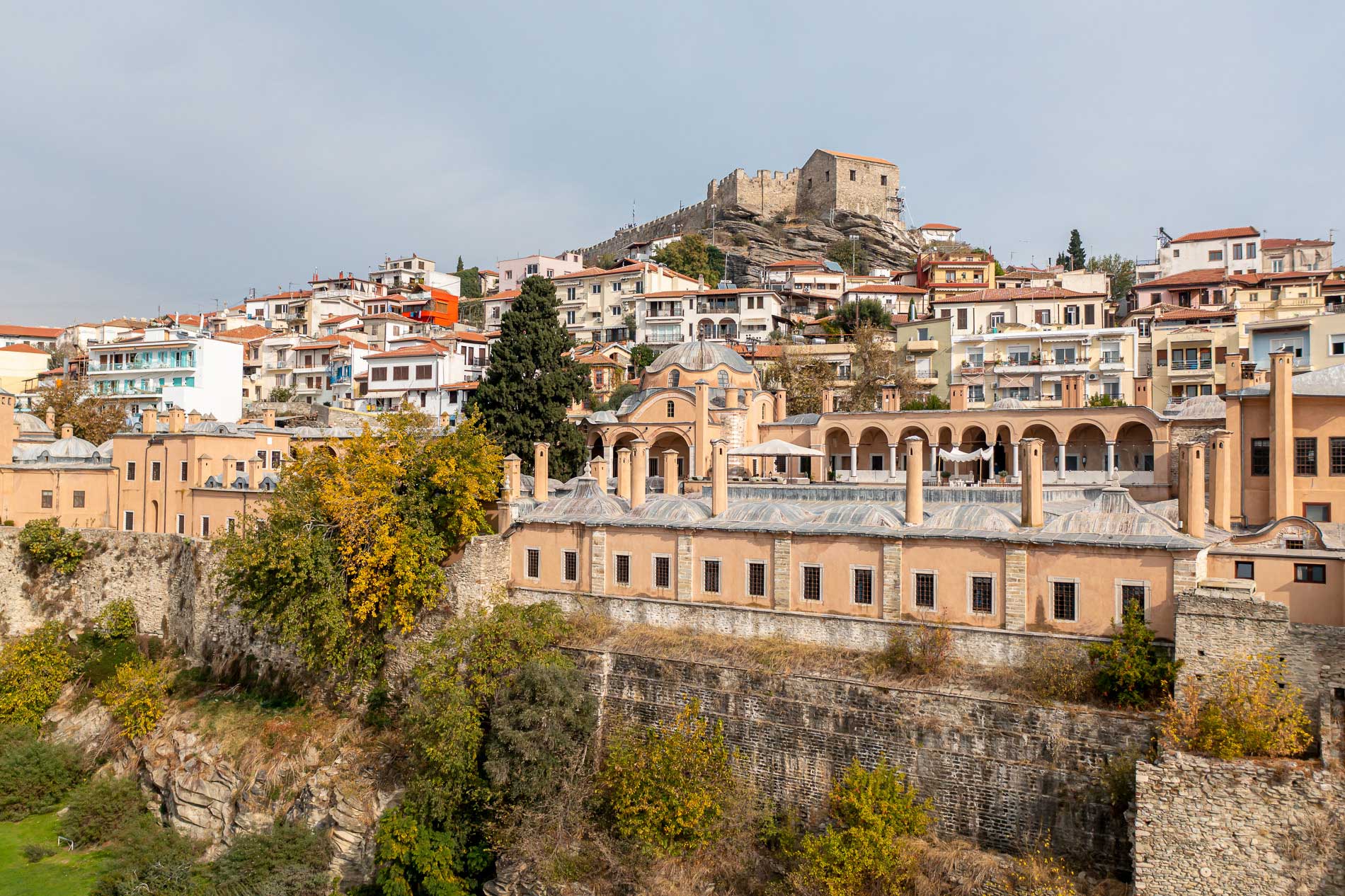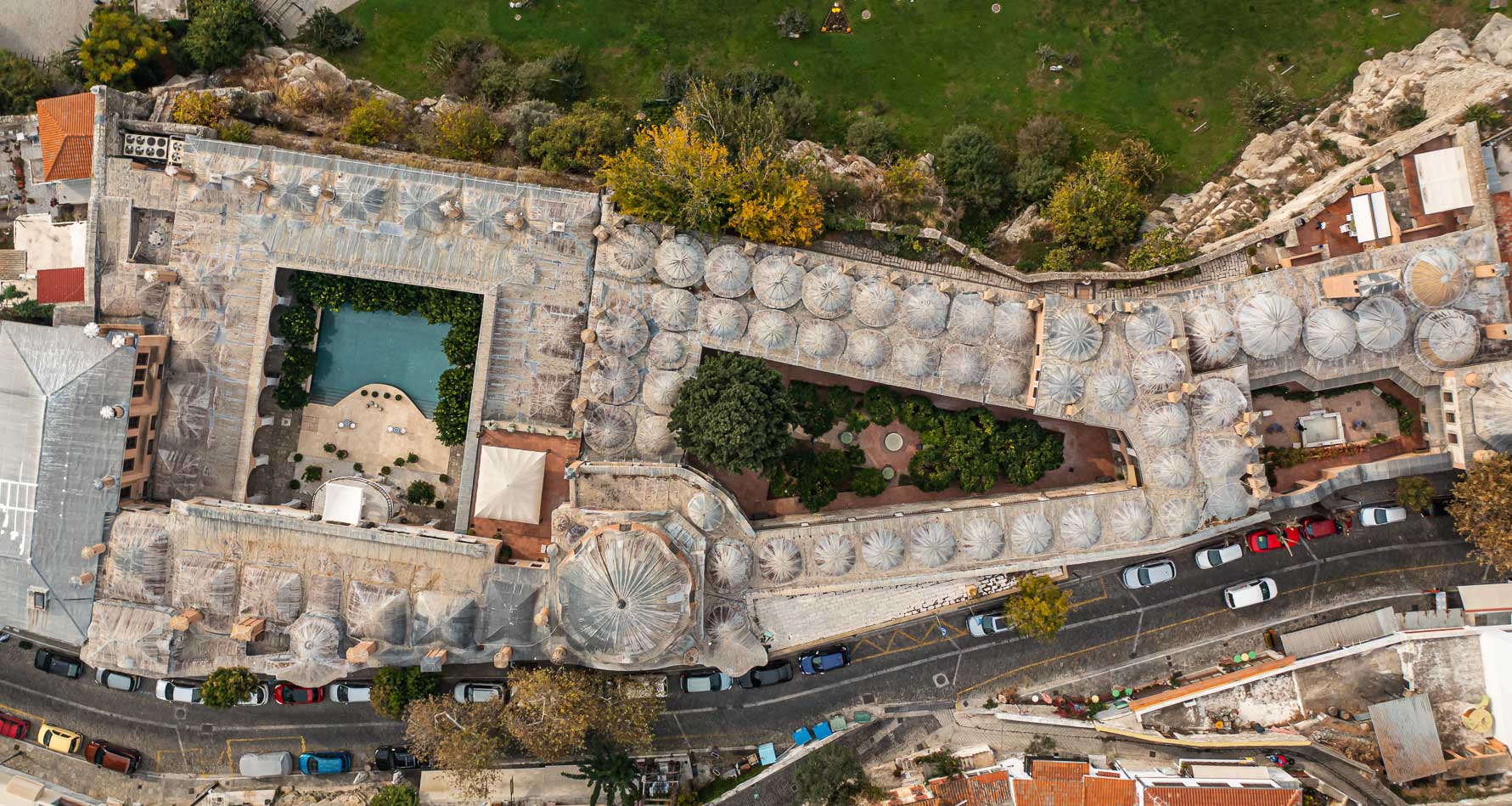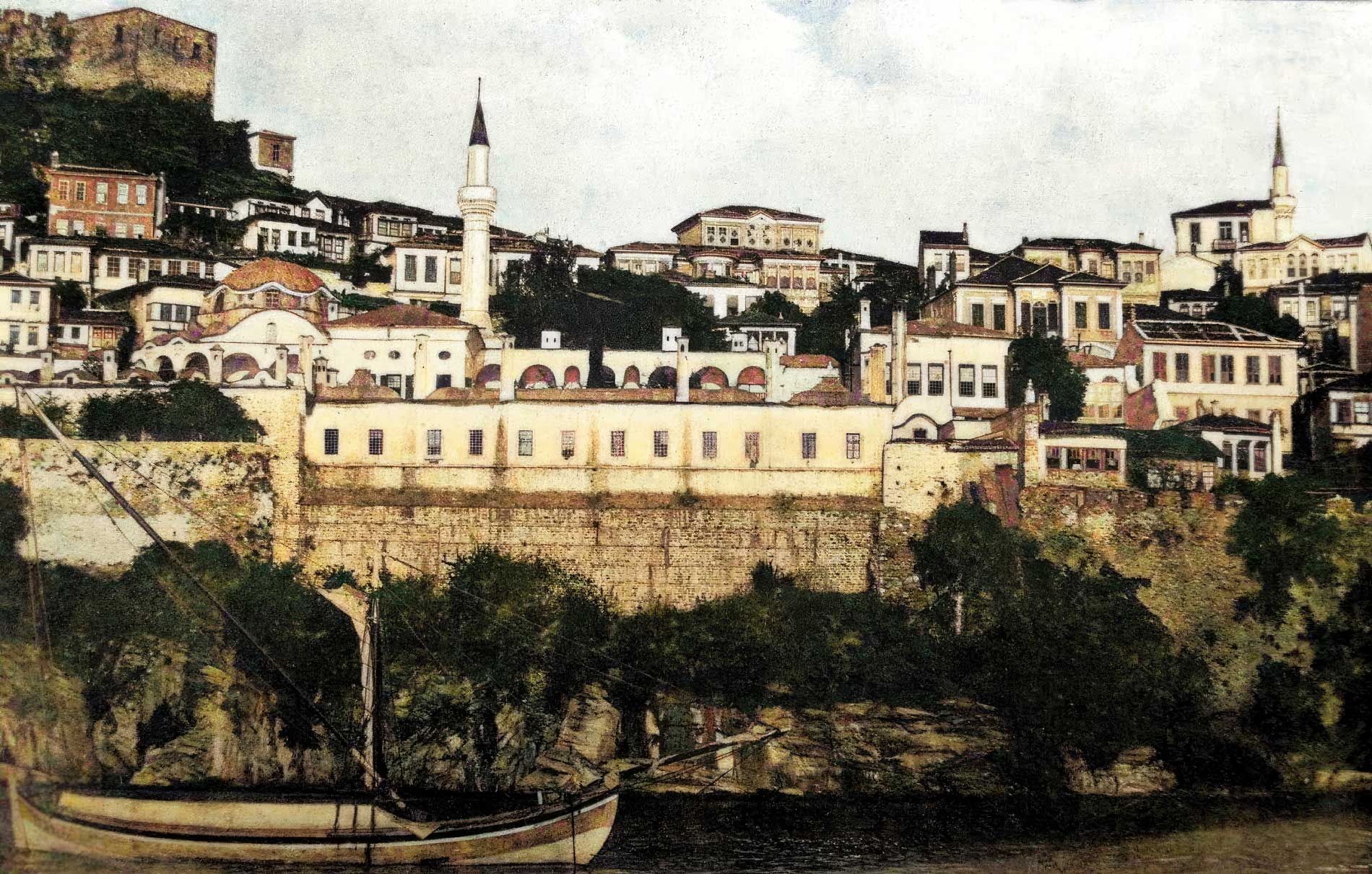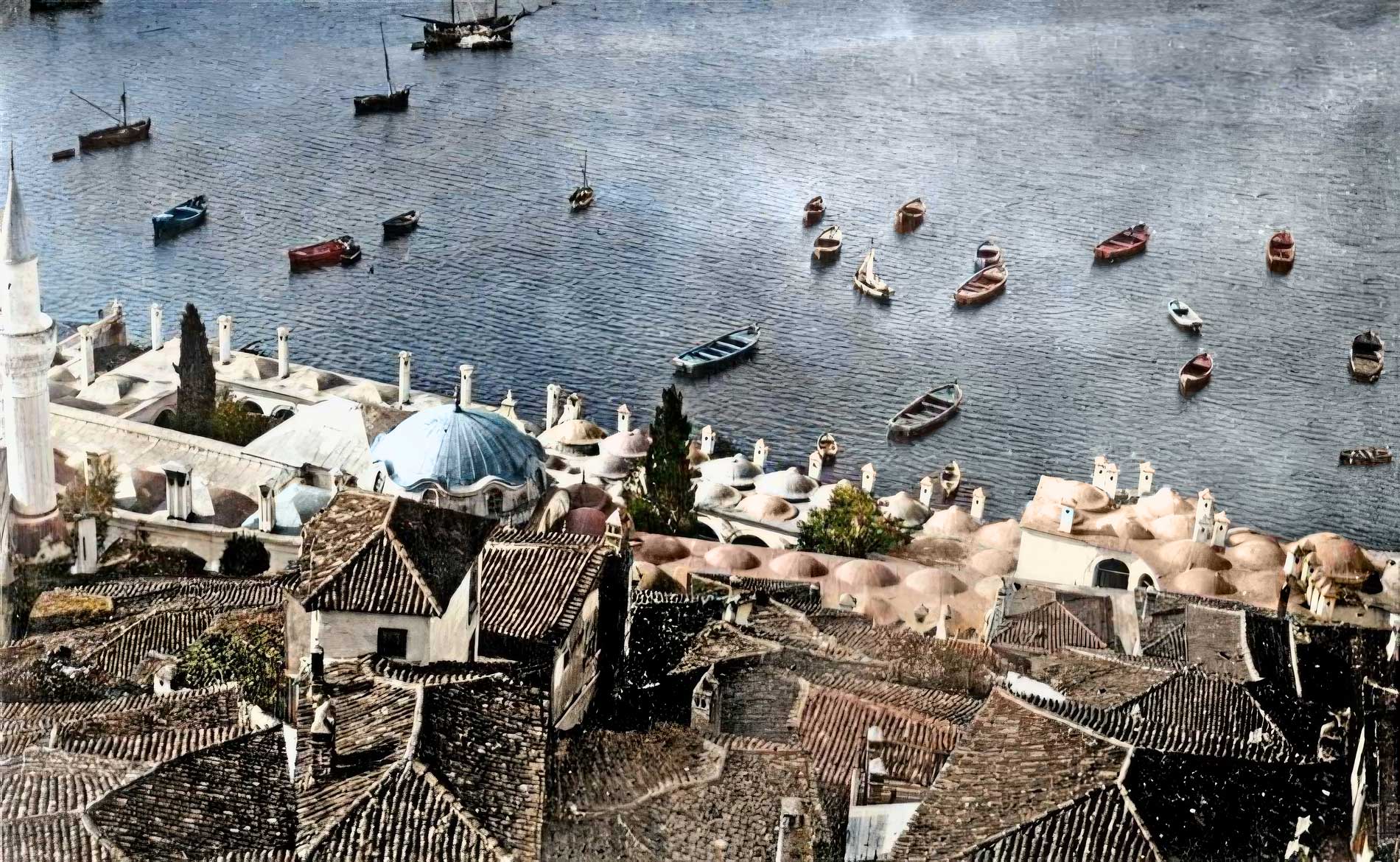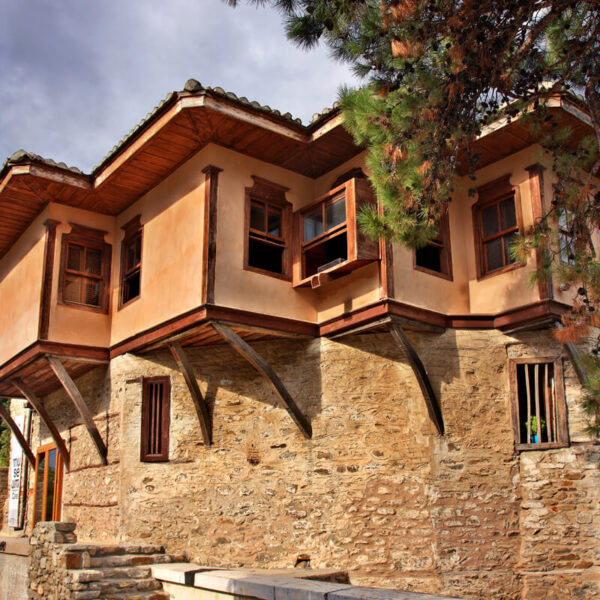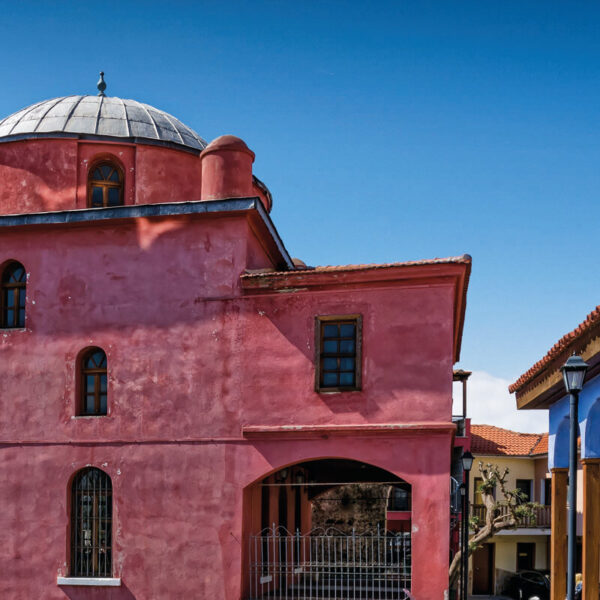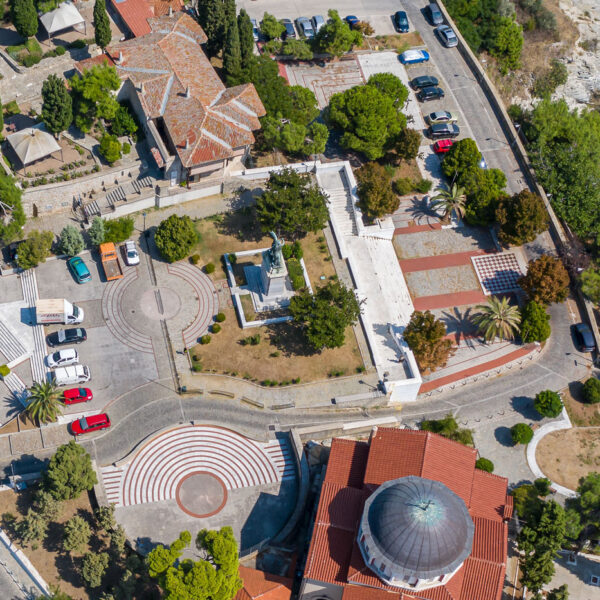Imaret
The Imaret of Kavala is one of the most beautiful and unique architectural and historical monuments of the city and one of the few remaining Ottoman külliye (religious and charitable complex) in Europe. Built in the early 19th century by Mohammed Ali, the founder of Egypt’s last ruling dynasty and a native of Kavala, the Imaret combines Islamic philanthropy, religious education and Ottoman architectural refinement. It was a seminary, soup kitchen and cultural center and today is beautifully restored and gives us a glimpse into the social and educational life of the era.
The Imaret complex is located in the heart of the old Panagia district below the fortress of Kavala. Its design is a perfect example of high Ottoman architecture of the 19th century, using local materials and styles. The complex consists of interconnected wings that open into courtyards and arcades, combining enclosed and open spaces to create a peaceful and harmonious whole.
The Kavala Imaret had two medreses (Islamic seminaries), two dershane-mescit (large domed prayer halls), a maktab (elementary school for boys), a soup kitchen (Imaret), administrative offices and various support spaces. In total it had 61 rooms and could accommodate up to 300 boarding students.
Besides its religious and educational components the complex had a library, printing press, study halls, cisterns for water storage, fountains for ritual washing (ablutions), a hamam (bathhouse) and a mosque. The design emphasized privacy, calm and order, with detailed decorations, modest luxury and the interplay of wood, stone and domed architecture.
Construction of the Imaret started in 1813 under the patronage of Mohammed Ali who was very fond of his hometown of Kavala and wanted to show it. He saw the Imaret as a center of learning and a charitable institution that would cater to the educational, religious and social needs of the Muslim population.
During the Ottoman period education was tied to religion. Until 1846 when secular education started, institutions like the Imaret were the central hubs of learning. Even after that the Kavala Imaret continued to provide religious and academic education and the school was active until 1902.
The soup kitchen was operating until 1923 and was feeding not only the students but also the poor, travelers and the general public regardless of religion. With the population exchange between Greece and Turkey after the Treaty of Lausanne the Muslim population of Kavala left and the Imaret’s original function came to an end.
From 1927 to 1960 the complex was used to host refugees from Asia Minor. In 1954 the Imaret and the adjacent House of Mohammed Ali were declared protected historical monuments and Egyptian properties (Wakf) by the Greek state. Although an international cultural center was proposed it never materialized. Over the years the buildings were neglected and misused.
In 2001 through an agreement with the Egyptian government the Missirian family undertook the complete restoration of the Imaret. Restoration started in November 2001 and was completed in June 2004 according to international conservation standards. Today the Imaret has been beautifully converted into a luxury hotel and cultural space that respects its original character and gives it a new role in the life of the city.
Local Interest
Today the Imaret is one of the most impressive historical sites in Kavala. Although it’s not functioning as a religious school or soup kitchen anymore its beautifully restored interiors and courtyards are open to guided tours and cultural events. It also hosts a boutique luxury hotel offering guests an experience full of history.
With its domes rising above the old town and its location overlooking the sea the Imaret is a central part of the Panagia district’s charm. It’s a reminder of Kavala’s cosmopolitan past and the legacy of its most famous son, Mohammed Ali.
Map
VISIT
Imaret
30-32 Theodorou Poulidou St, 65201 Kavala
Hours
All Year Daily:
Guided tours take place every day except Tuesday and Wednesday, from 10:00 to 14:00. Each tour starts every hour and lasts approximately 45 minutes.
Pricing
Full: €8,00
Reduced: €5,00 (for pupils, students, unemployed, disabled)
Contact Information
30-32 Theodorou Poulidou St, 65201 Kavala
Telephone: +30 2510 620151
Website: www.imaret.gr
